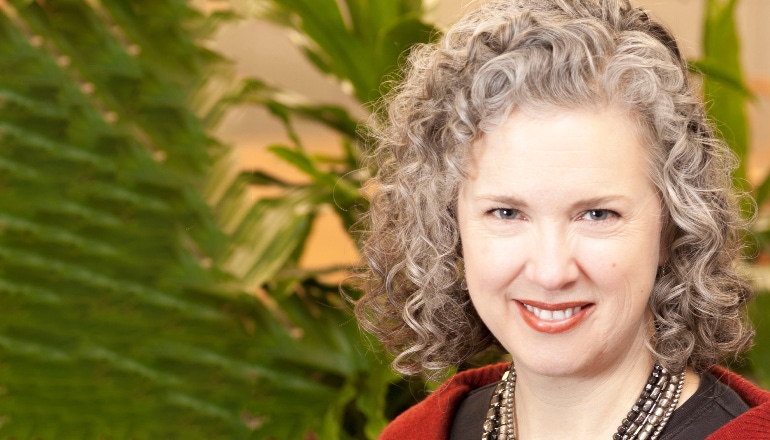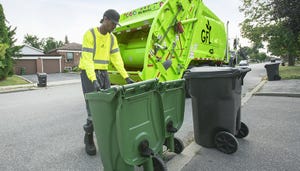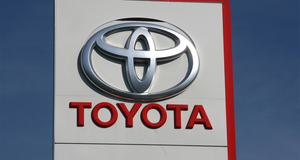Lowman Discusses Keep America Beautiful’s Goals, Accomplishments
KAB President and CEO Helen Lowman discusses the organization’s goals, recycling and waste reduction efforts and how it has changed and grown over the years.

Over the last 66 years, nonprofit Keep America Beautiful (KAB) has transformed from a public service messaging organization into an organization that aims to help change behavior around litter and recycling and improve communities.
To achieve its mission of improving recycling, reducing litter and beautifying communities, KAB has created grants, programs and initiatives, formed notable partnerships and hosted a variety of educational and actionable events to get people excited about making and keeping their communities clean, green and beautiful.
Leading KAB’s efforts is Helen Lowman, who has been president and CEO since 2017 and boasts more than 20 years of leadership experience in the areas of international diplomacy and development, youth engagement, environmental education, disaster resilience, global leadership, volunteerism, social justice and human rights.
We recently sat down with Lowman to discuss the organization’s goals, recycling and waste reduction efforts, some key milestones and how it has changed and grown over the years.
Waste360: Tell us about your background and how you got involved with Keep America Beautiful.
Helen Lowman: My first exposure and experience with Keep America Beautiful was actually at the local level. I started my career with the Texas National Resource Conservation Commission, which is now the Texas Commission on Environmental Quality. While I was there, I served on the board of directors of two local affiliates—Keep El Paso Beautiful and Keep Austin Beautiful—and as a state grant maker, I basically contracted with Keep Texas Beautiful to do the lake and river cleanups in Texas. All of this allowed me to really know the organization at the state and local level.
When a recruiter called me, I said I loved the organization and would love to be considered for the job of president and CEO, and that’s how it all came about.
Waste360: As president and CEO, what best practices do you follow to best run the organization?
Helen Lowman: The first thing would have to be communication. I don’t think you can communicate enough, and when you’ve communicated something once, you probably need to communicate it again. I think that’s a very important best practice in terms of making sure the organization is being best run.
I also think having the right people in the right seats is important. I always say that when I hire someone, it’s 90 percent attitude and 10 percent skill because working for a nonprofit is really hard, and you need to make sure the people who share your mission and passion are sitting in the right seats.
Lastly, it’s important to have an organizational culture that everyone can rally around and value. The culture within the organization should be something that everyone believes in and lives every day.
Waste360: You have more than 20 years of leadership experience. How would you define your leadership style?
Helen Lowman: I would say that I work very hard to be a servant leader. In my office and across our affiliate network, I think it’s important for me to be able to lead all generations and to be a flexible and adaptable leader. People want to be led in different ways, so I try to be adaptable with my leadership style.
I also think I’m a transformational leader. I like to lead change, and I think it’s important, particularly with an iconic nonprofit like KAB, that I focus on remaining relevant.
Waste360: You’ve been with Keep America Beautiful since 2017. What goals has KAB achieved so far under your leadership?
Helen Lowman: The first thing we’ve really done is looked at where we want to go and what we want to be as an organization in the future, so there are quite a few things we are doing more of and maybe differently.
One of the things I’m most proud of under my leadership is the development of the Community Restoration and Resiliency Fund, which started post-Hurricane Harvey in Texas and provides small amounts of money for our affiliates to rebuild public spaces after they’ve been destroyed by natural disasters. It has made a huge impact in communities and has given survivors a real visible sign that their communities are coming back.
We’re also redoing our nationwide litter research, which was last done in 2009. The litter research looks at who is littering, what is being littered, how it’s being littered, where it’s being littered, etc., so it’s a really comprehensive research study. The results of that will be out in 2020, and I think it will be interesting to see how litter in the U.S. may have changed over 10 years.
We’ve also had a lot of growth in the number of communities that are applying to be affiliates. In 2019 alone, we had more than 30 new communities come in as affiliates, which is great and takes us to about 650 affiliates across the country.
In 2019, we also placed more than 10,000 litter stands and hundreds of recycling bins in public spaces, such as parks and street corners.
Lastly, we’ve focused more on diversity and inclusion, ensuring we are offering opportunities to historically underserved communities to be a part of the movement that Keep America Beautiful is all about.
Waste360:KAB has been around for more than 66 years. How has the organization changed and grown over the years?
Helen Lowman: About 66 years ago, we started as a public service messaging organization, and we had and still have a partnership with the Ad Council. For years, the organization really only produced public service announcements to educate the public around litter and ending litter, but about 35 to 40 years ago, the organization shifted to become a national network of affiliates. These local, boots on the ground affiliates engage millions of volunteers to do cleanups, plant trees, recycle, etc. And while we still do the public service announcements, they aren’t the sole focus of what we do. We’re now an organization that does more around local impact and education experiences that change behavior around litter and recycling and improve communities.
Waste360: How is KAB helping to improve recycling and waste reduction efforts in communities across the nation?
Helen Lowman: We have programs, initiatives and grants. For example, America Recycles Day, an initiative of KAB, is celebrated across the U.S. In 2019, we did a lot of partnership initiatives with the EPA [U.S. Environmental Protection Agency], including a recycling summit on America Recycles Day, as well as the military to promote recycling at their facilities.
As far as grants go, we have grants that we give out for public-facing recycling. For example, we partner with the Coca-Cola Foundation to increase the number of recycling bins that are put in parks and street corners, and we partner with Keurig Dr Pepper to put recycling infrastructure in playgrounds.
Currently, we’re piloting some public-facing waterway projects in Ohio, Kentucky and Florida, and in the spring, we will have our annual Great American Cleanup, which usually has more than 20,000 cleanup events across the U.S. This year, we’re partnering with the Earth Day Network on the 50th anniversary of Earth Day, which also falls under the Great American Cleanup.
Waste360: As we enter 2020, what short- and long-term goals is KAB hoping to achieve?
Helen Lowman: In 2020, we are finishing a three-year strategic plan and finalizing our national litter study. We’re also looking at things like increasing accessibility to recycling in public spaces, reducing litter, increasing our affiliate network, increasing beautification efforts like tree planting and ensuring our work and movement is accessible to all communities—we’re Keep America Beautiful and want to ensure we represent the face of America.
We’re also in the early stages of developing our next strategic plan, which will be a five-year plan. To help us set our long-term goals, we sent out a survey to our affiliates, donors, board members, staff and partners asking them what they think KAB needs to be in the long term and what areas we need to focus on. At this point, we are leaving our plan open because we want to see what comes out of that process, and we want our plan to be from the ground up, not from my office pushing down.
Waste360: What are some areas of opportunity for KAB as well as the industry as a whole?
Helen Lowman: Changing human behavior is really hard, but we have a field-tested, scientific behavior change model that we know works, and I think there are a lot of factors that go along with that to make recycling successful. We really just need to figure out the most efficient and cost-effective way to educate and motivate people to recycle better and recycle right, especially since there’s so much bad information out there and so many people are confused.
I think there are three key factors that guide KAB’s work to improve recycling: convenience, communication and the cause of recycling. It all comes down to getting people to understand the benefits of recycling, why they should care about it and what their role is in a circular economy.
There are also other areas of opportunity for KAB, such as ensuring what ends up in the ocean isn’t because of litter, stopping the flow of waste into waterways and being inclusive of all three R’s.
Waste360: What are the main obstacles that stand between KAB and its mission? And how do you plan to overcome them?
Helen Lowman: Simply put, our mission is to educate and empower individuals to keep their communities clean, green and beautiful. We do that through improving recycling, ending litter and beautifying communities, and the biggest obstacle with our mission being successful is individual behavior.
I think everyone has a role to play in what we do, and everyone has to be seated at the same table in order to create real change and to solve the problems we have today. I believe in what KAB was founded on—the idea of a trisector partnership where businesses, nonprofits and the government sector all work together.
Clean and beautiful communities have many benefits. If you have a community without litter, there’s less crime. If people have access to a park that’s clean and safe, then there are improvements in public health. If a neighborhood is clean and beautiful and has infrastructure, property values go up. These are just some examples of how KAB’s work can change people’s lives, and I think sometimes people don’t know about the actual societal impact of our work.
Waste360: What would make the greatest difference in helping your organization improve what it does?
Helen Lowman: Our impact is only limited by resources. If I had millions of dollars to shift down to the community level and to our affiliates, we would only create a larger impact. So, our opportunity is only limited by how much I have in terms of resources to shift down to the grassroots level.
Waste360: Is there anything that you wish more people knew about your organization or the issues you are trying to overcome?
Helen Lowman: I wish more people knew the real impact of what we do. Last year, for example, our organization had 12,145,235 total volunteer hours; 95,888,356 pounds of recyclables, litter and debris collected; 611,807 trees, plants, shrubs, flowers and bulbs planted; 20,629 miles of rivers, lakes, shorelines and wetlands cleaned and improved; 64,333 miles of streets, roads and highways cleaned, improved or beautified; 206,628 acres of parks, public lands, playgrounds and trails cleaned and beautified; and $386 million in economic benefits provided to the communities KAB serves.
It’s really unbelievable when you think about what a network like KAB accomplishes with volunteers.
About the Author(s)
You May Also Like




